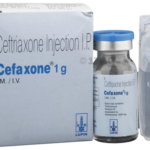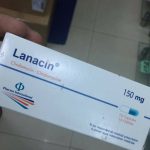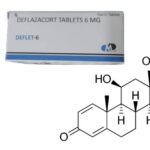Kesimpta: Uses, Dosage, Side Effects, Interactions

IMPORTANT SAFETY INFORMATION
Who should not take KESIMPTA?
Do NOT take KESIMPTA if you have active hepatitis B virus (HBV) infection.
What is the most important information I should know about KESIMPTA?
KESIMPTA can cause serious side effects such as:
• Infections. Serious infections can happen during treatment with KESIMPTA. If you have an active infection, your healthcare provider (HCP) should delay your treatment with KESIMPTA until your infection is gone. KESIMPTA taken before or after other medicines that weaken the immune system may increase your risk of getting infections. Tell your HCP right away if you have any infections or get any symptoms including painful and frequent urination, nasal congestion, runny nose, sore throat, fever, chills, cough, or body aches.
What is KESIMPTA (ofatumumab) injection?
KESIMPTA is a prescription medicine used to treat adults with relapsing forms of multiple sclerosis (MS) including clinically isolated syndrome (CIS), relapsing-remitting disease, and active secondary progressive disease.
Multiple sclerosis is a chronic disease that affects the central nervous system, which is the brain, spinal cord, and optic nerves. This can lead to a wide range of symptoms throughout the body. According to the National Institute for Neurological Disorders and Stroke (NINDS), 250,000–350,000 people in the United States are living with MS.
It is not known if KESIMPTA is safe or effective in children.
• HBV reactivation. If you have ever had HBV infection, it may become active again during or after treatment with KESIMPTA (reactivation). If this happens, it may cause serious liver problems including liver failure or death. Before starting KESIMPTA, your HCP will do a blood test to check for HBV. They will also continue to monitor you during and after treatment with KESIMPTA for HBV. Tell your HCP right away if you get worsening tiredness or yellowing of your skin or the white part of your eyes.
• Progressive Multifocal Leukoencephalopathy (PML). PML may happen with KESIMPTA. PML is a rare, serious brain infection caused by a virus that may get worse over days or weeks. PML can result in death or severe disability. Tell your HCP right away if you have any new or worsening neurologic signs or symptoms. These may include weakness on one side of your body, loss of coordination in arms and legs, vision problems, changes in thinking and memory, which may lead to confusion and personality changes.
• Weakened immune system. KESIMPTA taken before or after other medicines that weaken the immune system could increase your risk of getting infections.
Before you take KESIMPTA, tell your HCP about all your medical conditions, including if you:
• Have or think you have an infection including HBV or PML.
• Have ever taken, currently take, or plan to take medicines that affect your immune system. These medicines could increase your risk of getting an infection.
• Have had a recent vaccination or are scheduled to receive any vaccinations.
o You should receive any required ‘live’ or ‘live-attenuated’ vaccines at least 4 weeks before you start treatment with KESIMPTA. You should not receive ‘live’ or ‘live-attenuated’ vaccines while you are being treated with KESIMPTA and until your HCP tells you that your immune system is no longer weakened.
o Whenever possible, you should receive any ‘non-live’ vaccines at least 2 weeks before you start treatment with KESIMPTA.
o Talk to your HCP about vaccinations for your baby if you used KESIMPTA during your pregnancy.
• Are pregnant, think that you might be pregnant, or plan to become pregnant. It is not known if KESIMPTA will harm your unborn baby. Females who can become pregnant should use birth control (contraception) during treatment with KESIMPTA and for 6 months after your last treatment. Talk with your HCP about what birth control method is right for you during this time.
• Are breastfeeding or plan to breastfeed. It is not known if KESIMPTA passes into your breast milk. Talk to your HCP about the best way to feed your baby if you take KESIMPTA.
Tell your HCP about all the medicines you take, including prescription and over-the-counter medicines, vitamins, and herbal supplements.
How should I use KESIMPTA?
• Use KESIMPTA exactly as your doctor or healthcare provider tells you to use it.
• Your doctor or healthcare provider will show you how to prepare and inject KESIMPTA the right way before you use it for the first time.
• Do not inject into areas where the skin is tender, bruised, red, scaly or hard. Avoid areas with moles, scars, or stretch marks.
KESIMPTA may cause serious side effects including:
• Injection-related reactions. Injection-related reactions are a common side effect of KESIMPTA. Injecting KESIMPTA can cause injection-related reactions that can happen within 24 hours (1 day) following the first injections and with later injections. Talk with your HCP if you have any of these signs and symptoms:
o at or near the injection site: redness of the skin, swelling, itching, and pain or
o that may happen when certain substances are released in your body: fever, headache, pain in the muscles, chills, and tiredness.
• Low immunoglobulins. KESIMPTA may cause a decrease in some types of antibodies. Your HCP will do blood tests to check your blood immunoglobulin levels.
The most common side effects of KESIMPTA include:
• Upper respiratory tract infection, with symptoms such as sore throat and runny nose, and headache.
• Headache.
You are encouraged to report negative side effects of prescription drugs to the FDA. Visit www.fda.gov/medwatch, or call 1-800-FDA-1088.





